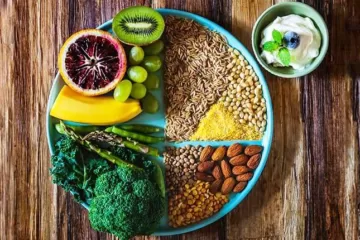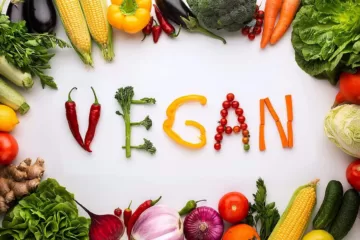Good digestion is the key to overall well-being. If you’re struggling with bloating, discomfort, or sluggish digestion, incorporating gut-friendly foods into your diet can make a world of difference. In this article, we will explore the most effective diet tips to improve digestion and reduce bloating. These tips feature a variety of gut-friendly foods that promote better gut health and provide relief from bloating.
What Are Gut-Friendly Foods?
Gut-friendly foods are those that support the balance of healthy bacteria in your digestive system, ensuring smooth digestion and reducing issues like bloating, gas, and constipation. These foods promote the growth of beneficial gut flora, which is crucial for breaking down food, absorbing nutrients, and maintaining a healthy immune system.
The Importance of Gut Health
Your gut plays a vital role in your overall health, influencing everything from immunity to mood. A balanced microbiome is essential for proper digestion, so the foods you eat directly impact how your digestive system functions. By adding more gut-friendly foods to your diet, you can enhance digestion, ease bloating, and prevent discomfort.
Best Gut-Friendly Foods to Improve Digestion
Incorporating the following gut-friendly foods into your meals can improve digestion and reduce bloating:
| Food Item | Benefits for Digestion |
|---|---|
| Yogurt | Contains probiotics that aid in the growth of good bacteria, promoting a healthy digestive system. |
| Ginger | Known for its anti-inflammatory properties, ginger can help soothe the digestive system and reduce bloating. |
| Bananas | A rich source of potassium, bananas help balance the gut microbiome and prevent constipation. |
| Leafy Greens | High in fiber and essential nutrients, leafy greens help improve gut motility and promote regular bowel movements. |
| Chia Seeds | Packed with fiber, chia seeds are excellent for digestion and help prevent bloating. |
| Garlic | Contains prebiotics that fuel beneficial bacteria in the gut, improving digestion. |
| Kefir | A fermented dairy product, kefir is a potent source of probiotics that can aid in digestion and reduce bloating. |
| Apples | Rich in pectin, a type of soluble fiber, apples help regulate the digestive system and prevent constipation. |
| Fermented Foods | Foods like kimchi and sauerkraut are high in probiotics and promote a healthy gut flora balance. |
These foods not only boost digestion but also reduce bloating and promote a healthier gut environment. Let’s dive deeper into how these foods work and why they are effective in supporting digestive health.
How These Foods Help Reduce Bloating
Bloating is a common digestive issue that can cause discomfort and pain. By focusing on gut-friendly foods, you can reduce bloating by improving digestion and promoting the growth of good bacteria. Here’s how specific foods can help:
-
Probiotics: Foods like yogurt, kefir, and fermented foods are rich in probiotics, which help balance the bacteria in your gut and improve digestion. A balanced gut flora can alleviate gas and bloating caused by an imbalance of bacteria.
-
Fiber: Foods such as bananas, leafy greens, and chia seeds are high in fiber, which regulates bowel movements and supports healthy digestion. Fiber helps keep things moving smoothly in the digestive tract, preventing constipation and bloating.
-
Anti-inflammatory Ingredients: Ginger and garlic are known for their anti-inflammatory properties. They help soothe the digestive tract, reduce irritation, and alleviate bloating caused by inflammation in the gut.
-
Potassium: Bananas are an excellent source of potassium, which helps maintain a proper electrolyte balance. Potassium aids in fluid regulation in the digestive system, reducing bloating and promoting smoother digestion.
Visual: Bloating Relief with Gut-Friendly Foods
The image above illustrates some of the top foods that can help alleviate bloating and improve digestion. Integrating these items into your meals can create a powerful defense against bloating.
Additional Tips for Better Digestion
Alongside incorporating gut-friendly foods into your diet, there are other strategies that can help improve digestion and reduce bloating:
-
Drink plenty of water: Staying hydrated helps with digestion and prevents constipation, which can contribute to bloating.
-
Eat smaller, more frequent meals: Large meals can overwhelm your digestive system, causing discomfort and bloating. opt for smaller meals spread throughout the day.
-
Chew food thoroughly: Chewing food properly breaks it down into smaller particles, aiding digestion and reducing the chances of bloating.
-
Exercise regularly: Physical activity helps stimulate digestion and prevent constipation, reducing the likelihood of bloating.
-
Manage stress: Chronic stress can negatively impact digestion. Practice relaxation techniques such as deep breathing, yoga, or meditation to support healthy digestion.
Embrace Gut-Friendly Foods for a Healthier You
Improving digestion and reducing bloating starts with making mindful food choices. By incorporating more gut-friendly foods into your diet—such as yogurt, ginger, and leafy greens—you can promote a healthier gut, reduce bloating, and feel more comfortable in your own body.
Remember that a balanced diet, proper hydration, and a healthy lifestyle all work together to support digestive health. Take these diet tips to heart and start enjoying the benefits of improved digestion today.




